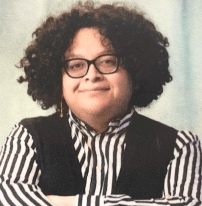by Natalie Hanson
posted July 24
Community organizations are relying heavily on partnerships with the Golden State’s government to aid LGBTQ people who face an increase in hate crimes across California.

There were 405 reported hate crimes motivated by sexual orientation bias (an increase of 3.6% from the previous year) in 2023, and 76 hate crime events motivated by anti-transgender bias (an increase of 7.04%). California’s attorney general Rob Bonta called those increased reports “alarming,” according to a report from Ethnic Media Services (EMS).
The state’s Department of Justice reports that despite the category increases cited above, there was a 7.1% decrease overall in hate crimes in 2023 from the previous year.
A recent LA Times/National Opinion Research Center poll on LGBTQ+ communities shows that most Americans accept same-sex marriage and laws to protect queer people from job discrimination. However, the same poll showed lower public approval on matters and legislation affecting trans and nonbinary people.
Representatives from the California Civil Rights Department, community-based organizations and LGBTQ+ advocates discussed the rise in some hate crimes in a panel convened by EMS last week. The speakers said that people may have different experiences with hate and discrimination depending on race, age, class, gender and other factors.
The state said that data collected within the latest year of operating the CA vs. Hate hotline demonstrates how the LGBTQ+ community’s input has shaped the services offered to people reporting hate crimes.
Toni Newman of the Black Leadership Council — a collection of leaders seeking to improve conditions for Black Californians and other vulnerable populations — said that 19 transgender people were killed in California in 2024. About 68% of the victims were people of color, and 32% were Black, they said.

Black transgender people are at particular risk of experiencing hate and violence, as well as employment and housing discrimination, Newman said.
Newman blamed religious institutions, and extremist groups for targeting transgender people, who are only 1.5% of the national population, with nearly 500 bills across the country.
However, “It is not all doom and gloom,” Newman said. The state legislature and Gov. Gavin Newsom in 2021 approved funding for the Intersex Heath and Equity unit, the first in the nation, to fund transgender-supporting organizations.
The governor also this month approved a law to protect public school children from being outed to their parents by school district employees.
Newman told the panel: “Transgender and nonconforming people are Americans. We are not asking for anything but fair treatment.”
Andy Ruiz, who provides legal support at the Transgender Health Clinic at St. John’s Community Health in Los Angeles, said that empowering the public and community organizations to report hate crimes is critical to protect LGBTQ people.
Ruiz said they often work with LGBTQ immigrants who are experiencing dangerous hate incidents. Latinos in San Diego and other cities are often reluctant to call police for help with hate — especially if that hate comes from family members, they said.
“I meet a lot of LGBTQ youth who are victims of hate incidents by their own relatives,” Ruiz said. “Restorative justice has been very helpful in Latino families in discussing the pain someone feels when they’re misgendered, or when they face (criticism) when they say they’re LGBTQ.”
Aries Rivers Yumul, a teacher and coordinator of LGBTQ+ District Resource and Support at the Santa Clara County Office of Education, said that LGBTQ students are still more likely to have higher absentee rates due to cyberbullying and other safety concerns.

Schools are the last bastions of public services for many students across the country, Yumul said, and public employees are often the first line of defense for the most vulnerable students.
“I think our youth are very much inundated with what’s happening in social media, what’s happening nationwide,” Yumul said. “They’re seeing and experiencing what it means to really be cared for, but they’re also seeing new ways that hate can spread.”
Becky Monroe, Deputy Director of Strategic Initiatives and External Affairs at the California Civil Rights Department, said that hate crimes on the basis of sexual orientation have consistently increased statewide since 2014. However, she cautioned the panel that the state takes into account the fact that hate crimes are underreported.
Monroe said that people do not need to have legal experience to know if the harm they experience rises to the level of hate crimes, and the state can step in to help make that determination. The state also is working with agencies with culturally competent workers who can also help provide support for people affected by hate crimes.
“If you report, you will get support,” Monroe promised.
Natalie Hanson is a contributing editor at ChicoSol News.

Thank you Natalie for this very informative article.